Abstract
Dielectric behavior of Saccharomyces cerevisiae wild-type and vacuole-deficient mutant cells has been studied over a frequency range of 10 kHz to 10 GHz. Both types of cells harvested at the early stationary growth phase showed dielectric dispersion that was phenomenologically formulated by a sum of three separate dispersion terms: beta 1-dispersion (main dispersion) and beta 2-dispersion (additional dispersion) and gamma-dispersion due to orientation of water molecules. The beta 1-dispersion centered at a few MHz, which has been extensively studied so far, is due to interfacial polarization (or the Maxwell-Wagner effect) related to the plasma membrane. The beta 2-dispersion for the vacuole-deficient mutant centered at approximately 50 MHz was explained by taking the cell wall into account, whereas, for the wild-type cells, the beta 2-dispersion around a few tens MHz involved the contributions from the vacuole and cell wall.
Full text
PDF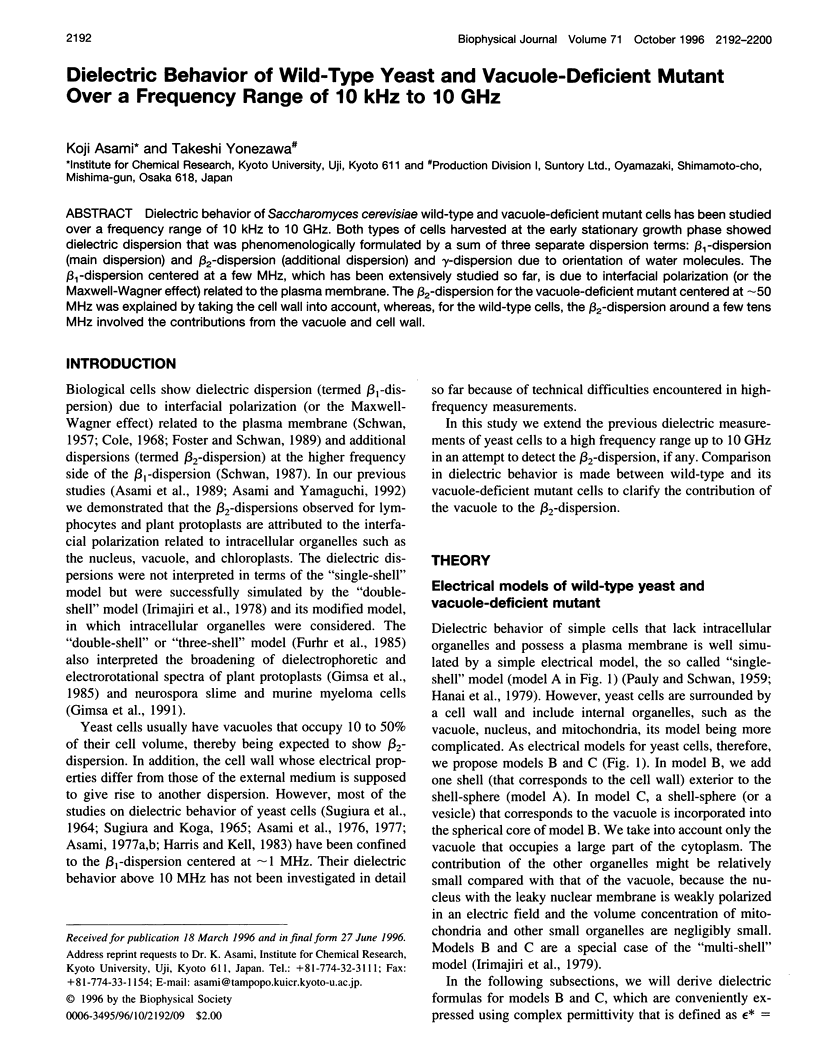
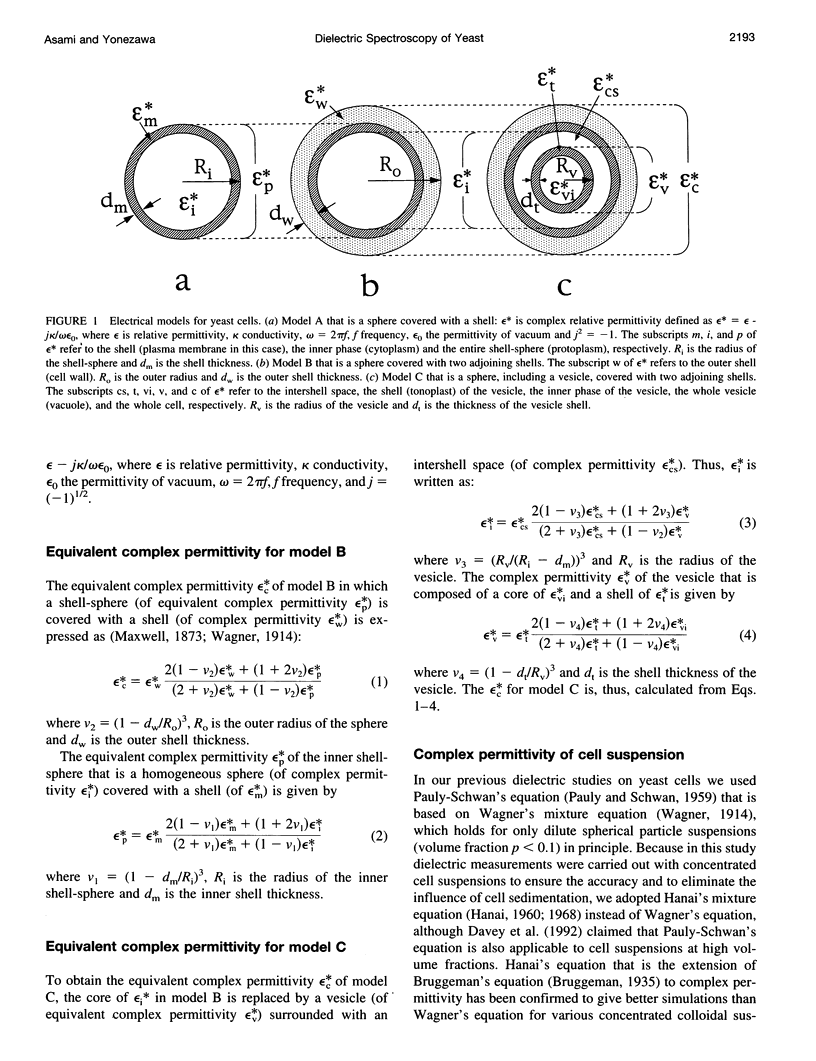
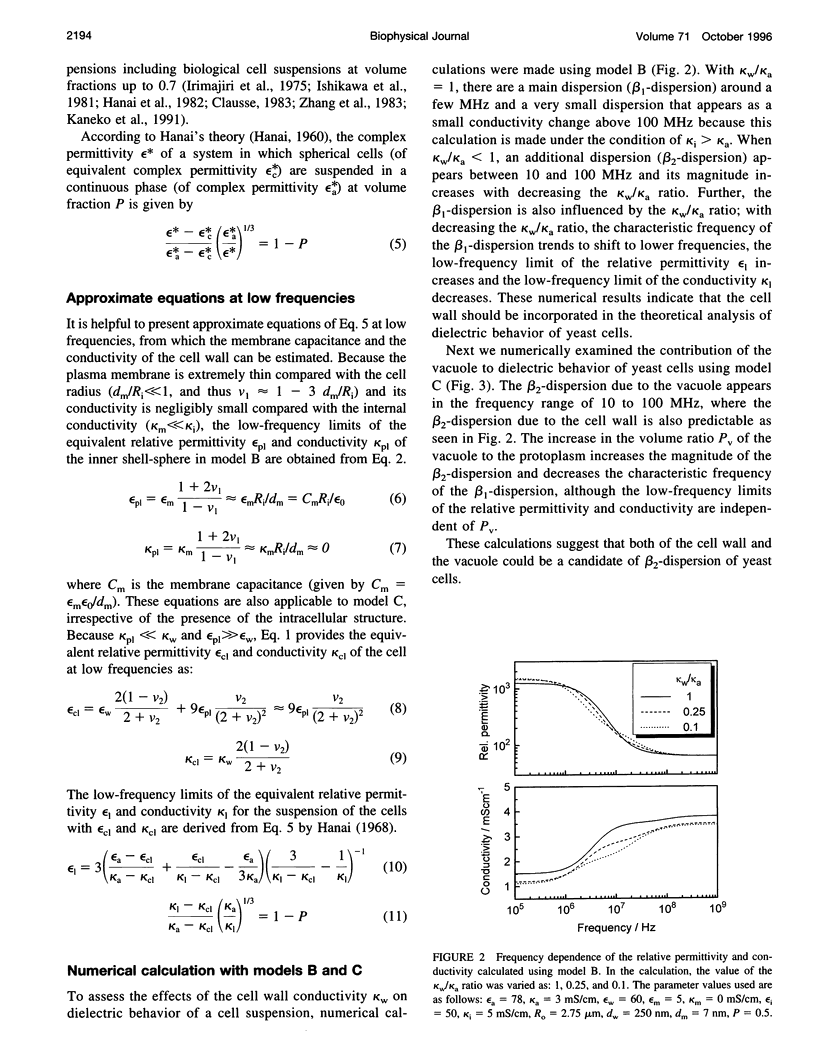
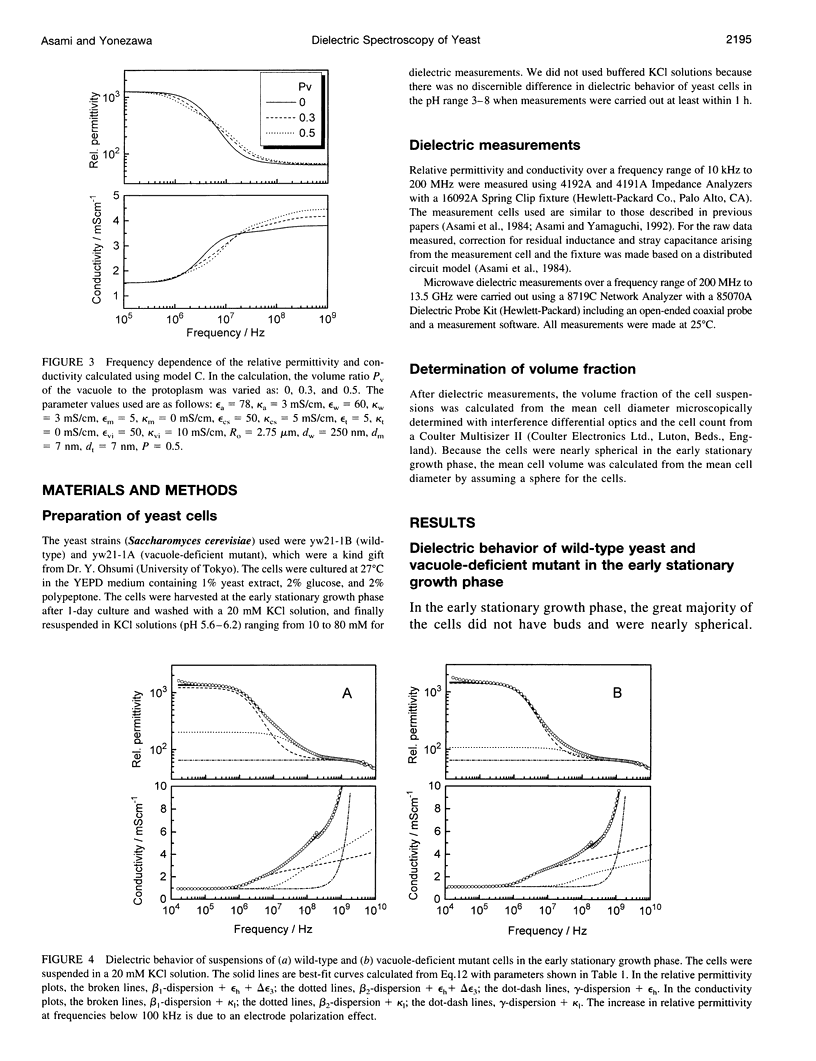
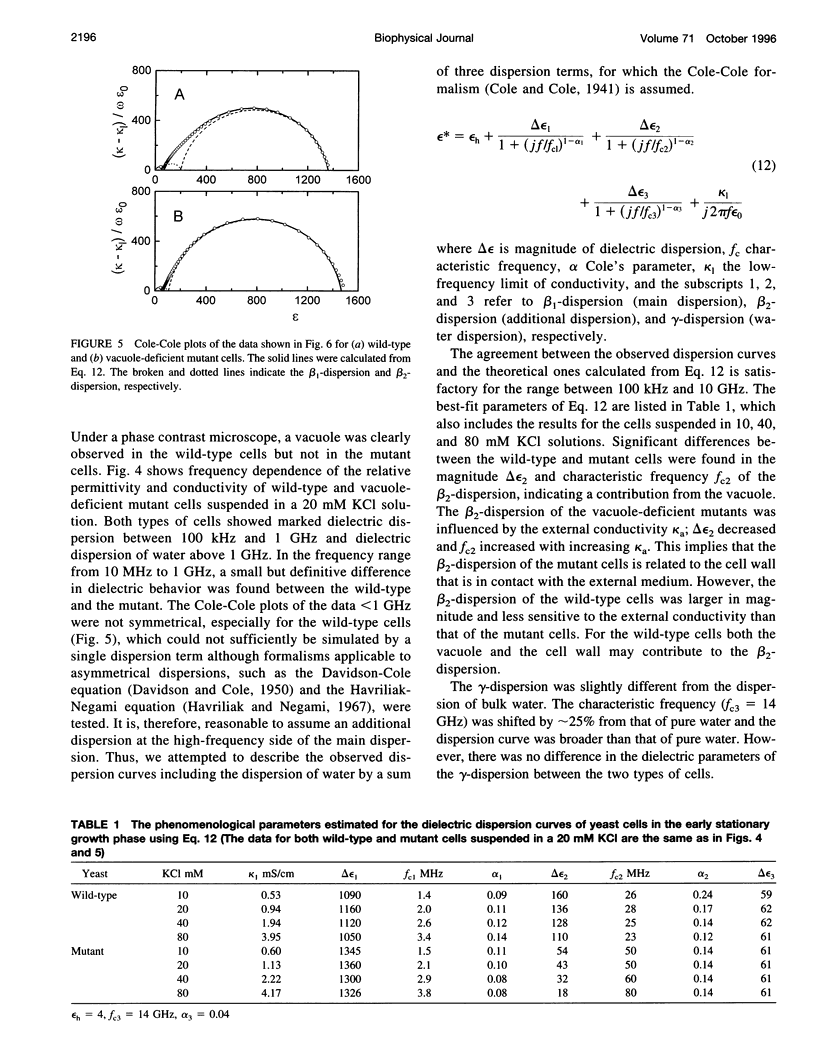
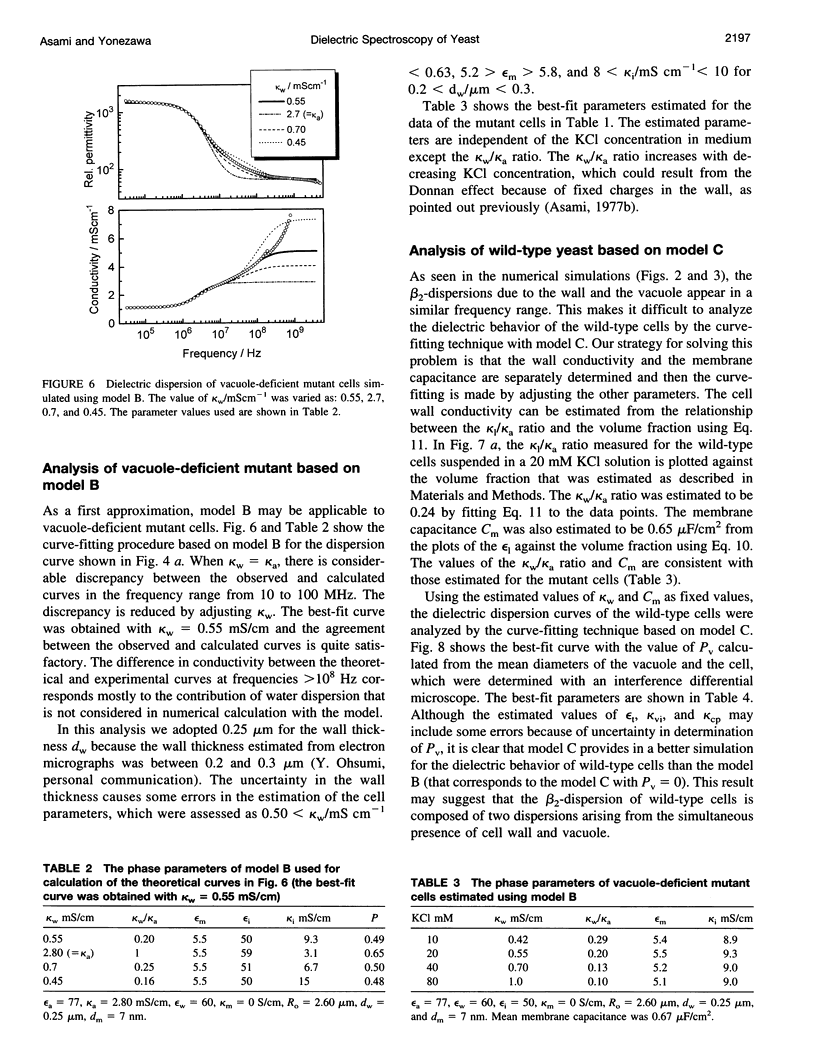
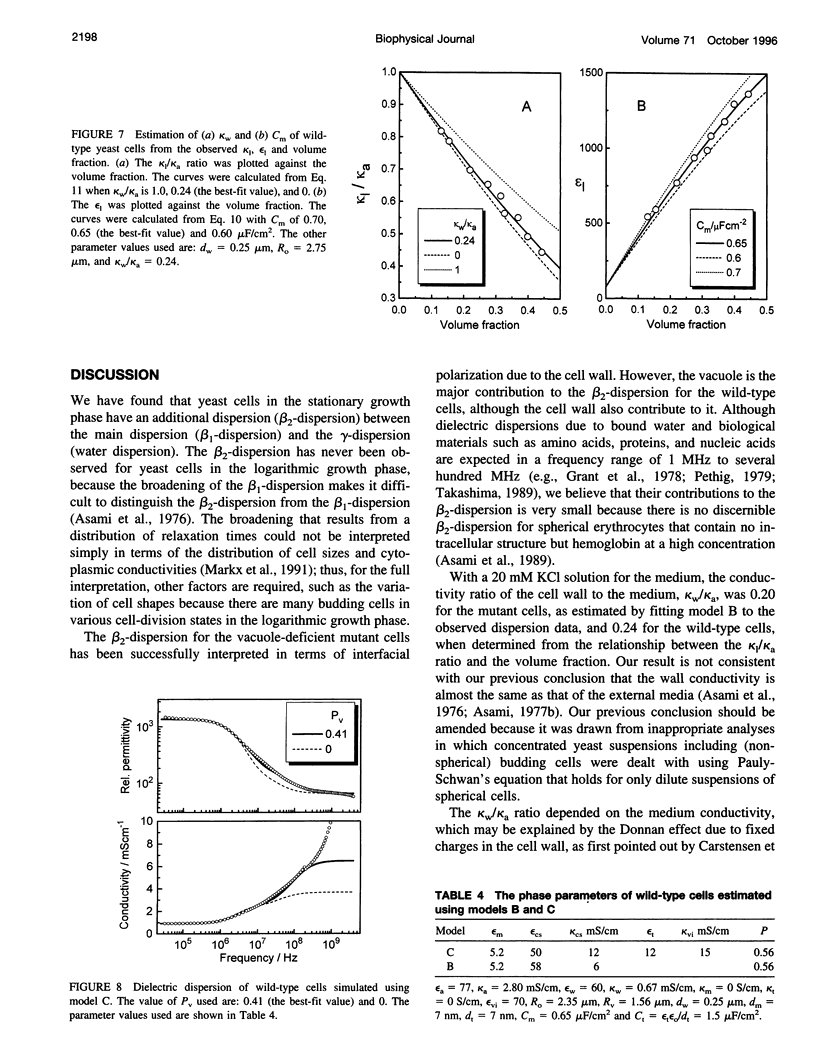
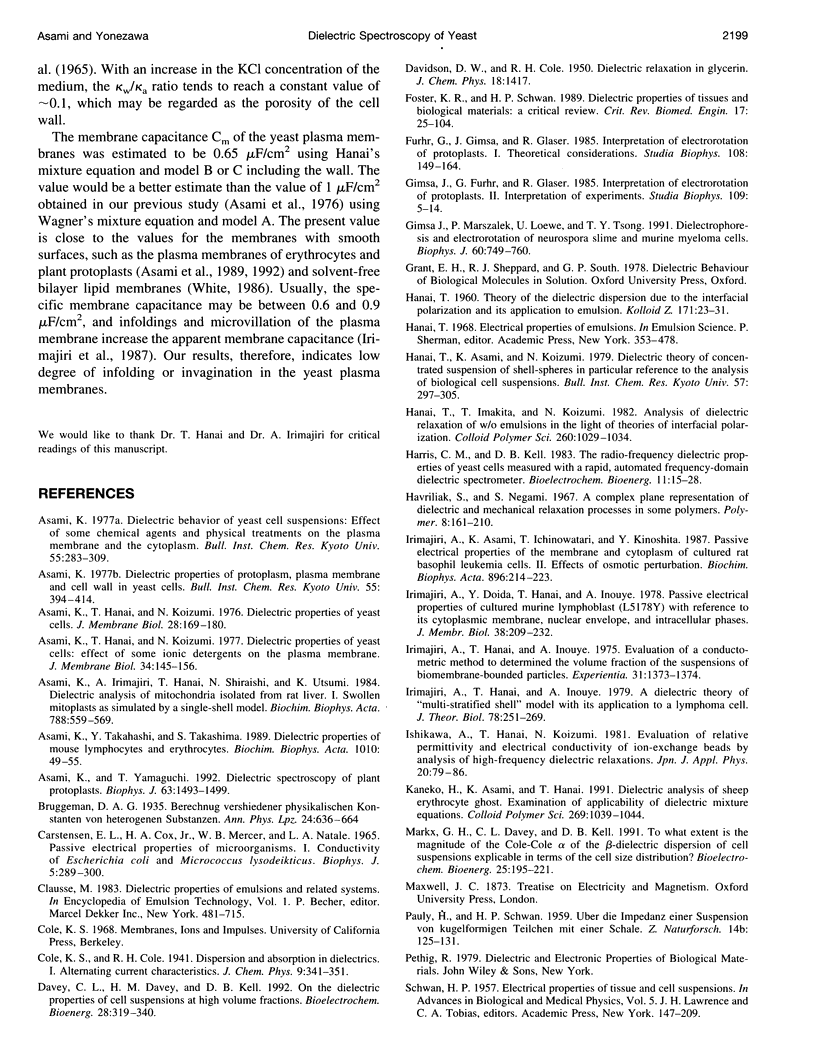
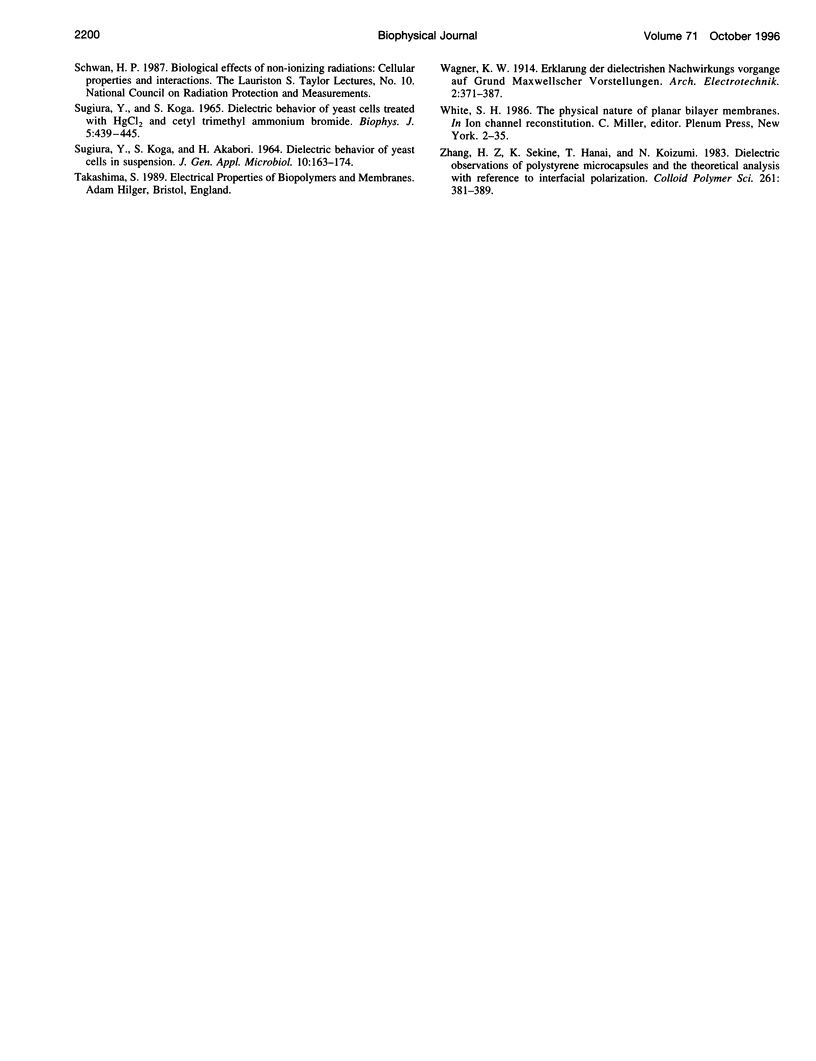
Selected References
These references are in PubMed. This may not be the complete list of references from this article.
- Asami K., Hanai T., Koizumi N. Dielectric properties of yeast cells. J Membr Biol. 1976 Aug 26;28(2-3):169–180. doi: 10.1007/BF01869695. [DOI] [PubMed] [Google Scholar]
- Asami K., Irimajiri A., Hanai T., Shiraishi N., Utsumi K. Dielectric analysis of mitochondria isolated from rat liver. I. Swollen mitoplasts as simulated by a single-shell model. Biochim Biophys Acta. 1984 Dec 19;778(3):559–569. doi: 10.1016/0005-2736(84)90407-3. [DOI] [PubMed] [Google Scholar]
- Asami K., Takahashi Y., Takashima S. Dielectric properties of mouse lymphocytes and erythrocytes. Biochim Biophys Acta. 1989 Jan 17;1010(1):49–55. doi: 10.1016/0167-4889(89)90183-3. [DOI] [PubMed] [Google Scholar]
- Asami K., Yamaguchi T. Dielectric spectroscopy of plant protoplasts. Biophys J. 1992 Dec;63(6):1493–1499. doi: 10.1016/S0006-3495(92)81734-4. [DOI] [PMC free article] [PubMed] [Google Scholar]
- Carstensen E. L., Cox H. A., Mercer W. B., Natale L. A. Passive Electrical Properties of Microorganisms: I. Conductivity of Escherichia coli and Micrococcus lysodeikticus. Biophys J. 1965 May;5(3):289–300. doi: 10.1016/s0006-3495(65)86717-0. [DOI] [PMC free article] [PubMed] [Google Scholar]
- Foster K. R., Schwan H. P. Dielectric properties of tissues and biological materials: a critical review. Crit Rev Biomed Eng. 1989;17(1):25–104. [PubMed] [Google Scholar]
- Gimsa J., Marszalek P., Loewe U., Tsong T. Y. Dielectrophoresis and electrorotation of neurospora slime and murine myeloma cells. Biophys J. 1991 Oct;60(4):749–760. doi: 10.1016/S0006-3495(91)82109-9. [DOI] [PMC free article] [PubMed] [Google Scholar]
- Irimajiri A., Asami K., Ichinowatari T., Kinoshita Y. Passive electrical properties of the membrane and cytoplasm of cultured rat basophil leukemia cells. II. Effects of osmotic perturbation. Biochim Biophys Acta. 1987 Jan 26;896(2):214–223. doi: 10.1016/0005-2736(87)90182-9. [DOI] [PubMed] [Google Scholar]
- Irimajiri A., Doida Y., Hanai T., Inouye A. Passive electrical properties of cultured murine lymphoblast (L5178Y) with reference to its cytoplasmic membrane, nuclear envelope, and intracellular phases. J Membr Biol. 1978 Jan 18;38(3):209–232. doi: 10.1007/BF01871923. [DOI] [PubMed] [Google Scholar]
- Irimajiri A., Hanai T., Inouye A. A dielectric theory of "multi-stratified shell" model with its application to a lymphoma cell. J Theor Biol. 1979 May 21;78(2):251–269. doi: 10.1016/0022-5193(79)90268-6. [DOI] [PubMed] [Google Scholar]
- Irimajiri A., Hanai T., Inouye A. Evaluation of a conductometric method to determine the volume fraction of the suspensions of biomembrane-bounded particles. Experientia. 1975 Nov 15;31(11):1373–1375. doi: 10.1007/BF01945836. [DOI] [PubMed] [Google Scholar]
- PAULY H., SCHWAN H. P. Uber die Impedanz einer Suspension von kugelförmigen Teilchen mit einer Schale; Ein Modell fur das dielektrische Verhalten von Zellsuspensionen und von Proteinlösungen. Z Naturforsch B. 1959 Feb;14B(2):125–131. [PubMed] [Google Scholar]
- Sugiura Y., Koga S. Dielectric behavior of yeast cells treated with HgC-12 and cetyl trimethyl ammonium bromide. Biophys J. 1965 Jul;5(4):439–445. doi: 10.1016/s0006-3495(65)86728-5. [DOI] [PMC free article] [PubMed] [Google Scholar]


